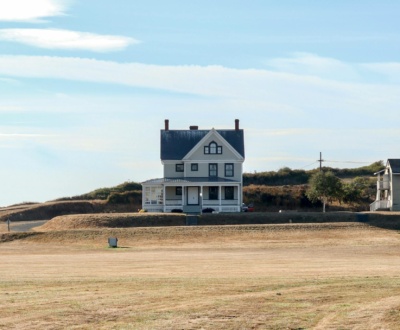Секрет испанского туризма: эффективные SEO-стратегии, о которых конкуренты не хотят, чтобы вы знали
- 17 ноября 2025 г.
- Последние статьи о тенденциях и советах SEO, Локальная SEO
Туризм в Испании — это очень конкурентная среда, и мощное цифровое присутствие крайне важно. Современные путешественники полагаются на поисковые системы для планирования поездок и бронирования услуг — например, более двух третей продаж туристических услуг теперь осуществляется онлайн. Для испанских туристических компаний хорошие SEO в Испании Это означает, что потенциальные посетители будут видеть ваш сайт, когда ищут туры, отели или достопримечательности. Оптимизируя свой сайт и контент, вы сможете привлечь путешественников ещё на этапе планирования. В Испании (и особенно в таких местах, как Барселона) эффективная SEO помогает привлечь местных и иностранных туристов, которые ищут на испанском, английском и других языках. Как отмечается в официальной стратегии Испании в сфере туризма, «контент — это король» в привлечении внимания посетителей. Одним словом, целевая SEO-оптимизация повысит вашу видимость, количество бронирований и конкурентоспособность на туристическом рынке.

Основы SEO для туристических сайтов
Туристический сайт должен занимать высокие позиции в результатах поиска, чтобы привлекать посетителей. Основные принципы SEO включают:
Исследование ключевых слов. Определите, какие термины используют путешественники. Вспомните такие запросы, как «hoteles Barcelona» или «tours Sevilla» на испанском языке, а также «Barcelona sightseeing» или «Spain wine tours» на английском языке. Используйте инструменты подсказки ключевых слов или подсказки Google, чтобы найти популярные туристические запросы.
Оптимизация на странице. Убедитесь, что каждая страница имеет понятный заголовок и метаописание с релевантными терминами. Используйте содержательные заголовки (H1, H2) и органично включайте ключевые слова. Оптимизируйте изображения, используя описательные названия файлов и альтернативный текст (например, sagrada-familia-barcelona.jpg).
Качественный контент. Создавайте страницы и записи в блоге, которые отвечают на вопросы туристов или вдохновляют их. Например, страница «Лучшие тапас-бары в Барселоне» может привлечь любителей вкусно поесть. Туристический контент должен быть интересным и информативным, чтобы не только удовлетворить посетителей, но и повысить их рейтинг.
Техническое SEO. Убедитесь, что ваш сайт загружается быстро и не содержит неработающих ссылок и ошибок. Обеспечьте понятное меню и навигацию, чтобы пользователи (и поисковые системы) могли легко найти информацию. Мобильный дизайн теперь является фактором ранжирования.
Структурированные данные (схема). Используйте микроразметку Schematic для своего бизнеса и предложений. Разметьте страницы отелей, ресторанов или туров с помощью соответствующих типов микроразметки, чтобы Google мог показывать расширенные сниппеты, такие как рейтинги или цены, в результатах поиска. Расширенные сниппеты помогут вашему объявлению выделиться и повысить CTR.
Внедрение этих базовых принципов выравнивает ситуацию: даже небольшой туристический бизнес может повысить свою видимость, авторитет и авторитет на конкурентном онлайн-рынке. Со временем грамотное SEO привлекает больше бесплатного (органического) трафика и бронирований, что делает его экономически эффективной стратегией для туроператоров любого размера.
Локальное SEO в Испании (в центре внимания Барселона)
Локальное SEO ориентировано на путешественников, ищущих услуги в определённом регионе. На туристическом рынке Испании это означает оптимизацию для испанских городов и регионов. Барселона, как одно из самых популярных направлений в Европе, находится в центре внимания. SEO-стратегии для Барселоны могут включать:
Профиль компании Google. Подтвердите и подтвердите свою страницу в Google Business. Это часто первое, что видят посетители при локальном поиске. Укажите точно своё имя, адрес, номер телефона, часы работы и категорию компании. Для отеля или туристической компании в Барселоне используйте релевантные ключевые слова в описании. Загрузите качественные фотографии и регулярно обновляйте профиль.
Отзывы клиентов. Поощряйте гостей оставлять отзывы в Google и на туристических платформах. Попросите довольных клиентов поделиться своими впечатлениями. Профессиональные ответы на отзывы укрепляют доверие и повышают рейтинг вашего объекта в поисковой выдаче.
Страницы, посвященные конкретному местоположению. Если вы обслуживаете несколько регионов или предлагаете разные типы туров, создайте отдельные целевые страницы. Например, компания, организующая пешие экскурсии по Барселоне, может создать страницы для Готического квартала или горы Монжуик. На каждой странице следует использовать местные ключевые слова, названия городов и достопримечательностей, чтобы привлекать поисковые запросы, связанные с конкретным регионом.
Локальные обратные ссылки и партнерства. Партнёрство с близлежащими достопримечательностями, отелями или организаторами мероприятий может принести ценные обратные ссылки. Ссылка с местного фестиваля или музея повысит авторитетность вашего бизнеса в глазах Google. Размещение информации о вашей компании в испанских туристических справочниках также может помочь.
Локальный контент и цитирования. Создавайте записи в блоге, посвящённые вашему региону (например, «10 лучших пляжей Барселоны»). Убедитесь, что ваша компания представлена с соответствующей информацией о NAP в местных каталогах, таких как Tripadvisor или Páginas Amarillas.
Местный язык и культура. Используйте испанский как основной язык. SEO БарселонаЕсли вы также ориентируетесь на местных жителей, рассмотрите возможность включения каталонского языка. Местный сленг и названия мест (например, «Barri Gòtic», «Sagrada Família») могут повысить релевантность.
Сосредоточившись на локальных сигналах, туристический бизнес в Испании может доминировать в поисковых запросах типа «hoteles Barcelona centro» или «turismo Galicia», охватывая путешественников, готовых бронировать номера.
Оптимизация многоязычного контента для испанской и международной аудитории
Туристический рынок Испании многоязычен. Чтобы охватить как местных, так и иностранных туристов:
Языковые версии и структура. Предоставьте контент на каждом из соответствующих языков: испанском, английском и, возможно, других. Используйте понятную структуру URL, например, подпапки (example.com/es/, example.com/en/). Подпапки помогают распределить полномочия домена.
Теги hreflang. Используйте атрибуты hreflang для указания языка и региона страницы. Это помогает Google показывать пользователям правильную языковую версию и избегать проблем с дублированием контента.
Перевод и локализация ключевых слов. Избегайте дословного перевода. Изучите, что именно ищут пользователи на каждом языке. Термины могут значительно различаться по популярности и релевантности.
Локализованный контент. Адаптируйте культурные отсылки к местным событиям, блюдам или обычаям. Указывайте цены в евро и контактную информацию местных жителей для повышения доверия.
Техническая согласованность. Используйте одинаковые URL-адреса на всех языках и избегайте принудительных автоматических перенаправлений.
Хорошо структурированный многоязычный сайт помогает как испаноговорящим клиентам, так и иностранным туристам легко ориентироваться в вашем контенте.
Контент-маркетинг и линкбилдинг в туризме
Помимо технического SEO, большую роль играют контент и построение ссылок:
Повествование и увлекательный контент. Используйте истории путешествий, советы, путеводители, маршруты, фотографии, видео и виртуальные туры, чтобы вдохновить посетителей.
Пользовательский контент. Публикуйте фотографии, отзывы и истории гостей. Пользовательский контент укрепляет доверие и может генерировать естественные обратные ссылки.
Создание ссылок. Зарабатывайте ссылки в авторитетных туристических блогах, местных СМИ, туристических справочниках и каталогах. Гостевые публикации, партнёрства и спонсорство мероприятий — всё это помогает.
Синергия социальных сетей. Поделитесь своим контентом в Instagram, Facebook или TikTok. Хотя социальные сети не являются прямым фактором ранжирования, они повышают видимость и трафик.
Дизайн и пользовательский опыт, ориентированные на мобильные устройства
Большинство клиентов туристической отрасли просматривают сайты с мобильных устройств, поэтому мобильная оптимизация имеет важное значение:
Адаптивный дизайн. Убедитесь, что сайт корректно работает на смартфонах. Сжимайте изображения, минимизируйте код и ускоряйте страницы. Многие пользователи отказываются от сайтов, которые загружаются медленно.
Оптимизация «Рядом со мной». Используйте ключевые слова местоположения и активируйте функцию звонка по клику или функцию отображения карты, чтобы собирать мобильные запросы типа «рядом со мной».
Удобство использования на мобильных устройствах. Меню должны быть простыми, кнопки — крупными, а формы бронирования — понятными. Избегайте навязчивых всплывающих окон.
Тестирование. Используйте удобные для мобильных устройств инструменты и инструменты для проверки скорости, чтобы находить и устранять проблемы.
Эффективный мобильный интерфейс улучшает рейтинг поиска и увеличивает конверсию бронирований.
Заключение
Для туристического бизнеса в Испании грамотная поисковая оптимизация критически важна для привлечения клиентов на переполненном рынке. Разбираясь в SEO в Испании и ориентируясь на местные рынки, такие как Барселона, вы сможете гарантировать, что ваш сайт будет виден пользователям, планирующим поездки. Начните с прочных основ: контента с ключевыми словами, дизайна, оптимизированного для мобильных устройств, и полноценного профиля Google Business. Адаптируйте свой подход к местным языкам и достопримечательностям, а также создавайте увлекательный контент о направлениях, которые вы обслуживаете. Выстраивайте отношения с местными партнерами, чтобы получать качественные ссылки.
Эффективное SEO, сочетающее внутреннюю оптимизацию, многоязычный охват, контент-маркетинг и передовые технические практики, будет стабильно повышать видимость вашего бизнеса. Со временем эти усилия повысят конкурентоспособность вашего бизнеса, помогая вам появляться именно тогда, когда путешественники готовы бронировать.
О нас и этом блоге
Мы — компания цифрового маркетинга, которая стремится помочь нашим клиентам достичь отличных результатов в нескольких ключевых областях.
Запросить бесплатную смету
Мы предлагаем профессиональные услуги SEO, которые помогают веб-сайтам значительно повысить свой органический рейтинг поиска, чтобы конкурировать за самые высокие рейтинги, даже если речь идет о высококонкурентных ключевых словах.








